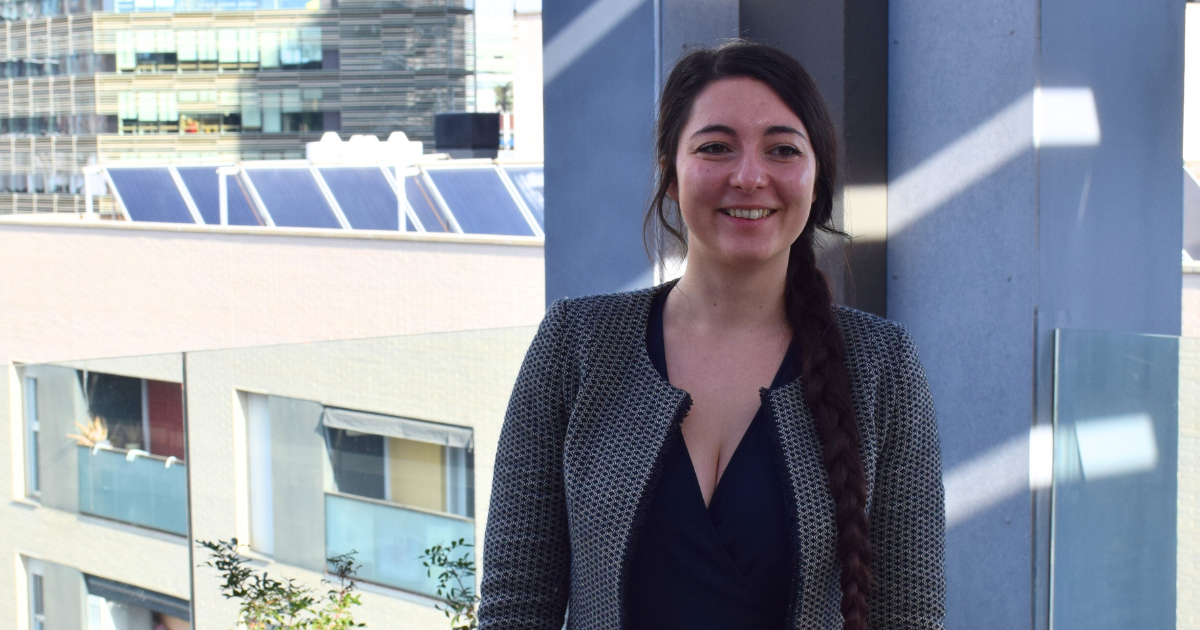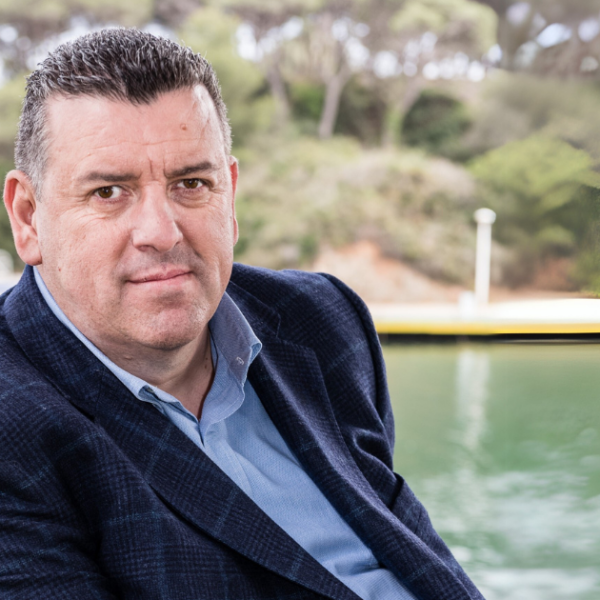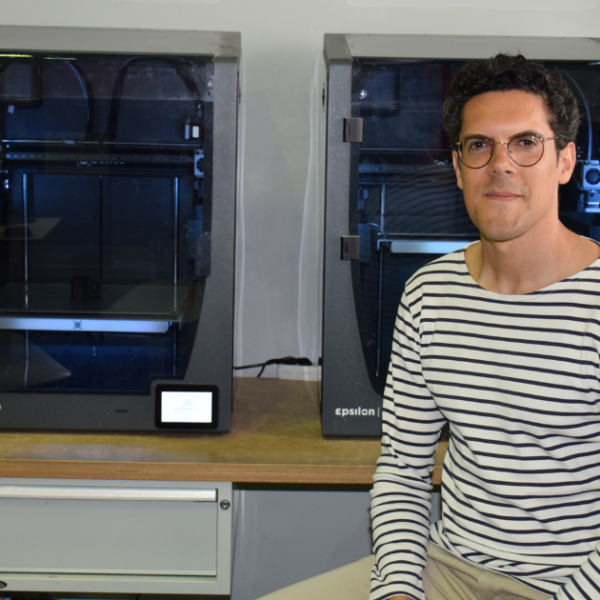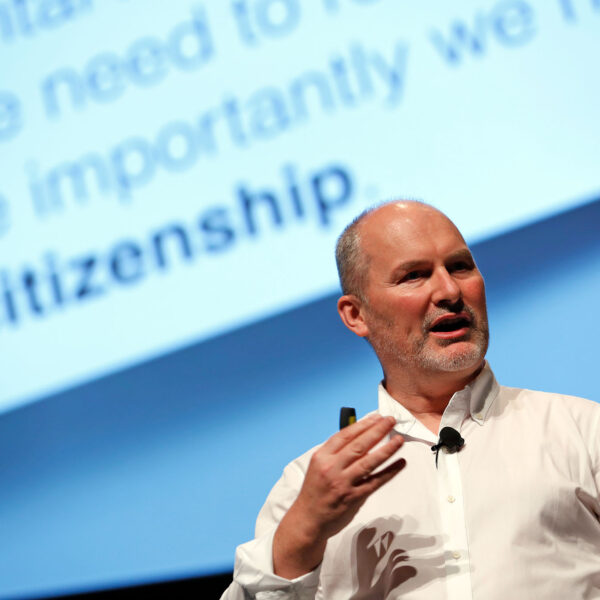Victoria Mandefield: “Soliguide allows professionals to save time for social work and support”

Victoria Mandefield: “Soliguide allows professionals to save time for social work and support”

We speak with Victoria Mandefield, CEO of Solinum and creator of Soliguide, a digital search engine for resources or social organizations aimed to people in vulnerable situations. Thanks to the Solidigital project, Soliguide arrives in Catalonia and will integrate with Nidus and the French application Reconnect.
How did the idea of Soliguide come about?
The idea originated in France, stemming from my experience as a volunteer, where I often found myself providing inaccurate information. The social sector undergoes frequent changes, with high turnover among social workers, volunteers, and organizations opening and closing. This dynamic environment can make it challenging to navigate. Moreover, there are numerous stakeholders involved, including associations and public services, making the landscape somewhat chaotic. I needed access to updated, precise, and comprehensive information, which led me to create Soliguide. Initially, it was a small and limited project, but over time, it has evolved into something more professional.
And now Soliguide is reaching Catalonia. How do you view this expansion beyond the border?
I believe the main advantage of this expansion into Catalonia, compared to our experience in France, is the significant time savings. Currently, when we expand into new territories in France, the process is rapid; we know exactly what we’re doing, understand the methodologies, follow well-defined steps, and get the job done. Whereas initially, we were somewhat unsure of what we were doing, leading to a bit of chaos. Consequently, it took us a long time to see the social impact of Soliguide, to spread its reach, and to gather quality data. Now, it’s different. And that’s what I aim to bring to Catalonia and Spain: the ability to move faster to achieve a greater social impact. Of course, this will involve adapting to local realities because there will be things we don’t know and will discover, while other aspects will require modification, which will be an interesting exercise.
What challenges do you foresee Soliguide encountering in its deployment in Catalonia?
I think the beauty of it all lies in being surprised by certain things. Institutional relations are probably not the same in France and Spain. Culturally, they are two quite different countries. There won’t be the same realities. The type of migration present in Catalonia and France is different, even though there may be some similarities. And this is the great interest of a cross-border project: there will be bilateral exchanges that will allow us to better assist people.
You have a fundamentally technological background. How do you think technology can contribute to improving people’s living conditions and reducing inequality?
Precisely because I’m an engineer, people often expect me to have a very pro-technology stance, to say that it will solve all the world’s needs, when in fact I don’t believe that at all. Technology can be relevant in various aspects. Especially in terms of efficiency. In 2023, there were 3.7 million searches made in Soliguia. Those are significant numbers. When I compare it to when I was a volunteer, I think back then I would provide information one by one, and I could give an average of ten pieces of information over a few hours. In this case, technology allows us to have a much larger scale impact and make certain things more efficient that are not always rewarding. For social workers, for example, desperately searching for information, asking colleagues, making calls who knows where, searching through old files… these are not activities that have a great added value. And suddenly, if they can save this time, it’s time they gain for social work. This is one of the great impacts of Soliguide: it allows professionals to focus on human relationships, on social support, something that digital tools can never replace.
How do you measure the social impact of Soliguide?
The topic of social impact assessment is very important to me. We have already produced 3 reports in this regard. It’s relevant because obviously there are always anecdotes, and we see people whom Soliguide has helped access care, find assistance, etc. But that’s not enough. There needs to be a rigorous impact assessment that goes beyond anecdotes, meaning it should be quantitative. And then we see that the biggest impacts are the time saved for social workers and volunteers, better coordination among actors in the same territory, providing guidance with better quality data. There’s also a better relationship of trust between actors in the social sector and their beneficiaries. Previously, beneficiaries would ask for information and the people working in the sector would provide whatever they could, which wasn’t always the right information. Now, with Soliguide, they provide updated information, which builds more trust. We also know that Soliguide is very economically efficient for a territory. For every euro invested, there’s a return of €1.93 in savings because all that lost time, all that lost energy costs money.
How is the quality of the data collected in Soliguide reviewed?
This is the key aspect, and it’s not always given the attention it deserves. Often people think, “I’ll create a fantastic mapping, the application will have these features, those functionalities, and everything will go smoothly.” And they overlook the heart of the project: the data. It’s very, very difficult to have quality data. What we do is evaluate the currency of data for a territory to ensure it’s up to date. And we are very precise in this aspect. For example, if an organization closes during the summer, that will be reflected. We don’t just list the hours, but also which days they close, etc., because that’s important for people. And we also ensure that the information is complete. It’s good to know that there’s a food distribution point in a certain place, but if you don’t know exactly which public it’s aimed at, what documentation is required, if it’s saturated or not, or if you don’t have contact information, it’s not so useful.
It’s a work of detail…
We make a concerted effort to comprehensively cover each territory. If we were to include only two or three entities or structures from each territory in Soliguide, it wouldn’t be relevant. It’s important to collect as many as possible, and if possible, all the organizations that exist in a particular territory in order to better guide people.
And achieving this requires the human touch. There’s no substitute for it with technology. While we do run summer and winter update campaigns and strive to automate processes, ensuring the accuracy of information always involves making calls and confirming details. It’s a significant undertaking. Additionally, there’s a misconception that digital tools can operate independently, but that’s not the case; they require human oversight. This is why Soliguide always seeks partners to carry out the work on the ground.
One of the key strengths of the Solidigital project is cross-border collaboration. What advantages do you think this collaboration format brings?
There’s a fundamental reason why this cross-border collaboration is interesting, and it’s because these borders are highly permeable. Administratively, a border exists, but in reality, one can move from one side to the other, and many issues are shared across these boundaries. Cross-border cooperation allows us to collectively address the common problems we face, as well as exchange best practices, avoiding redundant efforts. What I find particularly compelling about this project is the concept of interconnection. In the social sector, we’ve lagged behind in adopting and developing technology and digital tools compared to the private sector. We are way behind compared to the private sector. However, for the last few years, the private sector has been heavily focused on the interconnection of tools. The era of creating monolithic, standalone tools is over. Developers now work to create tools that interconnect with other tools, which in turn connect with others, and so on. This approach has proven to be the most effective. And suddenly, it turns out that we’re not as far behind in the social sector: we simply need to prioritize interconnecting existing tools rather than seeking a singular and magical solution to all problems. This aspect underscores the significance of the Solidigital project: it represents a significant stride forward in the social sector, advancing the democratization of technology and the integration of technological tools.
An example of this interconnection, within the framework of the Solidigital project, is the integration of Soliguide with the Nidus tools in Catalonia and Reconnect in France. What benefits do you think this integration will bring?
I believe that what Soliguide will bring to Nidus and Reconnect is more added value for users. We’ve tested this in France on several occasions, such as with the app Entourage, and I think it will be the same with Nidus and Reconnect: for users, it will be fantastic to have a map from the Soliguide database, as they won’t have to search for the information they need in another application. And in our case, integration has an immense advantage, which is to increase our social impact. For example, we don’t have a communication strategy for the general public; we don’t address all citizens, but thanks to the interconnections we’ve been making, we reach users we never thought we’d reach.
How can the continuity of this project be ensured in the long term?
To ensure its long-term continuity, two key aspects come into play. Firstly, there’s the imperative of doing a good job: if you have a significant social impact, you become necessary. If you can objectively prove that your social impact evaluation indicators are excellent, things continue. This has been our experience across various regions. Secondly, there is the appropriation by institutional actors. Co-construction has many virtues. One of them is the ability to make better decisions, tailored to local realities. However, it also has the benefit of allowing people to take ownership of the project. And if they feel that the project is theirs, they are less likely to abandon it, and politicians and entities are more likely to invest in it, either with money or with human resources.
Do you think the social sector has changed in recent years?
It has changed, undoubtedly; in some ways for the better, in others for the worse, but I think we have participated, in any case, in a certain positive digitalization of the sector. I say “positive digitalization” because there has been another less positive one in the sense that, for example, now beneficiaries of social services are forced to do all the procedures online, without assistance, and that’s complicated. But technology can also be useful, and that’s what we’re working on.
Another contribution that has been made, and of which we have been part, is a certain form of collaboration. At the beginning, for example, when we talked about the involvement of the beneficiaries in social action, we felt a bit alone. It seems very obvious that in a social project, the opinions of those involved should be sought, but the truth is that a few years ago it was not a majority position. People were accompanied in their daily lives, yes, but there was the idea that their real needs were already known, which is not true. And I think that has changed, that it has been understood that the participation of those people involved must be included.
What role should politics play regarding poverty and social exclusion? Do you think technological innovation can help address these issues on the agenda?
What technology can bring, and what we try to bring in any case, is reliable data. We have more and more data and analyze them more. We can tell politicians: “Look, we have data confirming that there are so many food banks in this area, and that many of these banks are saturated; and according to the data, in this other area there are no resources. These are the data, do what you think is appropriate.” I still think there is a lack of reliable data on which to make reasoned decisions. Otherwise, it’s easy to fall into abstract political protest, which I experienced as a volunteer and which is very tiring and doesn’t contribute much. If we can change perspective, we can say: “Okay, here’s a problem, and it’s objective. We’re not saying it, the data are.” And from there we can work together to solve it. And I think that’s the role politicians of the future can have: working on problems from the root, beyond the ambitions of each organization. Identifying the problem and seeing what could be done to solve it before it arises.
Entrevistes




